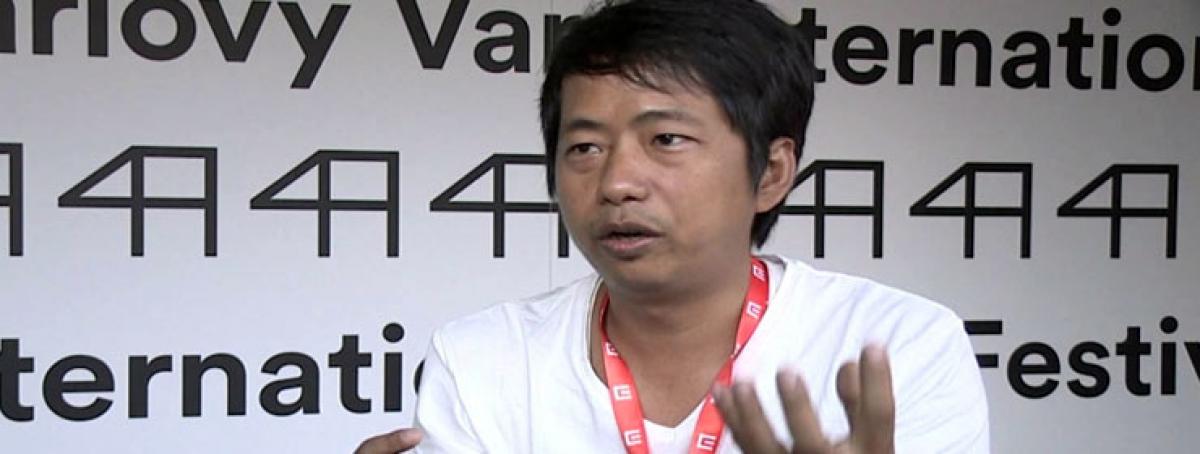Live
- Over 7,600 Syrians return from Turkiye in five days after Assad's downfall: minister
- Delhi BJP leaders stay overnight in 1,194 slum clusters
- Keerthy Suresh and Anthony Thattil Tie the Knot in a Christian Ceremony
- AAP, BJP making false promises to slum dwellers for votes: Delhi Congress
- 'Vere Level Office' Review: A Refreshing Take on Corporate Life with Humor and Heart
- Libya's oil company declares force majeure at key refinery following clashes
- Illegal Rohingyas: BJP seeks Assembly session to implement NRC in Delhi
- Philippines orders full evacuation amid possible volcanic re-eruption
- Government Prioritizes Welfare of the Poor, says Dola Sri Bala Veeranjaneyaswamy
- Two Russian oil tankers with 29 on board damaged due to bad weather
Just In

x
Highlights
Strict censorship in Myanmar doesn\'t allow native filmmakers to showcase social and politically driven stories, due to which it\'s difficult for these films to survive, especially in comparison to Hollywood and Bollywood movies, says filmmaker The Maw Naing.
Dharamsala: Strict censorship in Myanmar doesn't allow native filmmakers to showcase social and politically driven stories, due to which it's difficult for these films to survive, especially in comparison to Hollywood and Bollywood movies, says filmmaker The Maw Naing.
.jpg)
The independent filmmaker has been honoured at various international film festivals for his debut feature film "The Monk".
"Just like most of the societies around the world, in Burma too majority of people like to see Hollywood films. Also, there we have a huge Indian community which likes to see Bollywood films," Naing told IANS on the sidelines of fourth Dharamshala International Film Festival, which concluded here last week.
Naing refers to his country as Burma though the ruling military junta changed it to Myanmar in 1989, a year after thousands were killed in the suppression of a popular uprising. Rangoon became Yangon, and English language names were introduced for towns that were ethnically not Burmese.
Asked about problem faced by filmmakers there, Naing said: "Censorship is a big issue there, because Burma is controlled by military generals. So, they have all control on it. Censorship is very strict as they don't allow social and political stories. That's why most of the films made there are love stories and humour, which are pure entertainment."
His own film "The Monk" has not been shown in Burma.
"It is about a sensitive issue and I still I've to apply for censorship," he said.
"There, people also like to see Burmese films. But due to the strict censorship, films that are made there don't tend to showcase reality. That's where audience get limited."
"There are very few people who like to see our in-house films. It's quite difficult for them (Burmese films) to survive due to Hollywood and Bollywood, which have huge markets," added Naing.
"Our films have very limited budget. The government doesn't support in production at all. People who want to make films, have to use their own money and equipments."
Talking about the popularity that Bollywood films enjoy in Myanmar, Naing said: "People in Burma are keen about Bollywood films... Like those of actor Shah Rukh Khan. In Burma, we get to see a lot of pirated copies of Bollywood films that are imported from China.
"In that way, we get a change to see Indian films and other European films that are awarded at various film festivals. This gives us a great chance to learn how people are making independent films."
A fan of Satyajit Ray's way of filmmaking, especially "The Apu" trilogy, Naing also enjoyed "The Lunchbox".
"I've seen a lot of documentaries from India that have touched my heart," he said.
Naing shared that around 50 Burmese films are made on an average every year. However, he feels most of them are made for entertainment purpose.
He explained that the Burmese film industry has a "two kinds of distribution system".
"One is if you are shooting a film with 35mm film camera, then you are given the chance to show the film at theatres. Otherwise, if you have shot a film through a digital camera, then you are only given the chance to release the film on DVD. Including both of them, around 40-50 films are screened in Burma in a year," he said.
For his future projects, Naing wants to make films dealing with real life in Burma.
He said: "I wish to share more stories about Burma. I want to show the day-to-day life of people there. I want to make a new base of art based on my society (Burmese society). I like to be experimental. I don't like being in the mainstream cinema. I want to make films inspired by real-life incidents."

Next Story
More Stories
ADVERTISEMENT
© 2024 Hyderabad Media House Limited/The Hans India. All rights reserved. Powered by hocalwire.com







